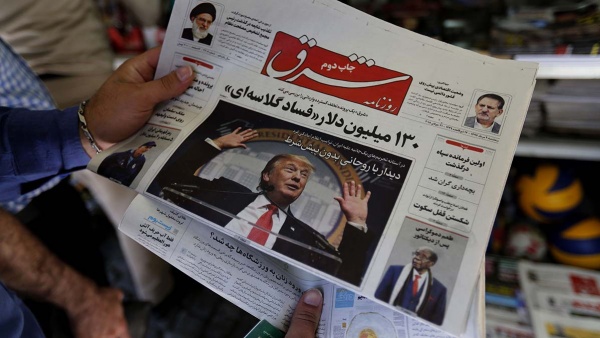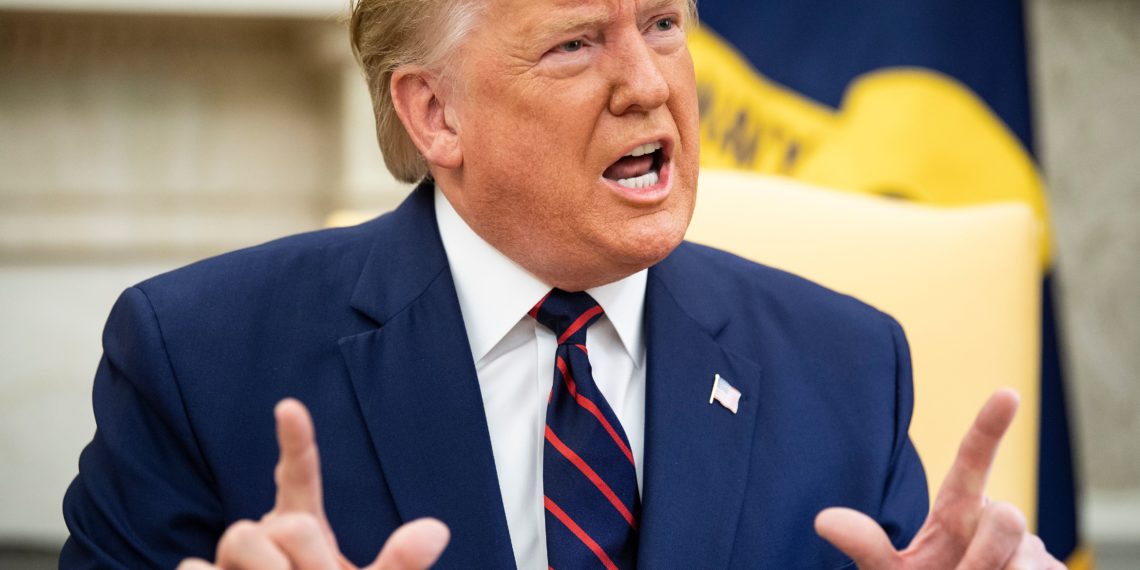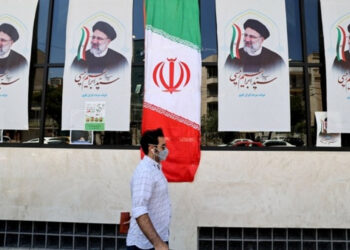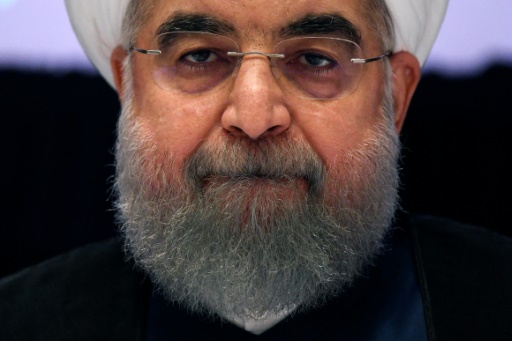This is part two of a three-part series. Read part one here.
The crippling U.S. economic sanctions on Iran pose an existential threat to thousands of average Iranians. Before the signing of the nuclear deal in 2015, most Iranians blamed their own government for their deprivations, but today, they increasingly see the United States as the main culprit. They see a United States that broke its word and abrogated an agreement that called for sanctions relief in return for Iranian concessions on its nuclear program. Iran had kept its commitment, but the U.S. did not and instead intensified the severity of its sanctions.
To Iranians, their regime has committed no transgressions since 2015 but is blamed for conflicts in the region while the U.S., Saudi Arabia, the UAE, and Israel get a free pass. American policies are slowly converting Iranians from largely admiring America to branding it as the bully, even the existential threat, that is behind their misery. This buildup of Iranian bitterness is likely to contribute to increased militarization of Iran, regional instability, and future conflicts.
How will Tehran’s animosity play out in the region?
Iran’s Military Buildup
Iran is devoting more and more resources to its security. In the first instance, it is developing its air defenses, missile program, and cyber capabilities. Even though it has been starved of oil revenues by sanctions, Iran is likely to maintain its support for Bashar al-Assad’s regime in Syria, for Iranian-backed militias in Iraq, for the Houthis in Yemen, and for Hezbollah.

Iran came away from its war with Iraq, where it was isolated with no leverage on its adversaries, with an important lesson: it needed allies who could pressure and threaten adversaries. To this end, Iran has nurtured Hezbollah and Iraqi militias for pressuring adversaries, mainly to raise the cost of bullying for the U.S., and, if provoked, to threaten U.S. interests all over the Middle East and farther afield.
The American branding of Iran as the biggest state-sponsor of terrorism falls on deaf ears as U.S. forces encircle Iran, the U.S. lends military support for Saudi war atrocities in Yemen, carries out covert operations all over the region, and uses drones and cyber forces to threaten its adversaries.
Average Iranians who previously saw alliances with Hezbollah and militias as a waste of Iranian resources are increasingly endorsing such relations as they fear for their security and feel the pain of U.S. sanctions with no apparent end in sight.
Sanctions and War
The regime in Tehran sees sanctions and its isolation as war, with economic destruction from global isolation and death from deprivation. Much of the population will become supporters of the regime as Iran is made to pay a heavier price for seemingly committing no transgressions.
Iran has little choice but to strengthen its military capabilities, not merely nuclear abilities but its conventional assets in the form of sophisticated missiles and drones, and its alliances with non-state actors. Once developed, these military capabilities and ties will likely be used if and when there is the slightest provocation. Such conflicts will steadily spread around the region and globe and become more destructive.
If and when an unintended or intended altercation occurs, how is Iran likely to respond?
The U.S. can easily overpower Iran with bombs and cruise missiles. But an air assault will achieve nothing positive for Washington because it will only make Iranians more ardent enemies of the United States.
If Iran wants to fight, that will be the official end of Iran. Never threaten the United States again!
— Donald J. Trump (@realDonaldTrump) May 19, 2019
An invasion and occupation of Iran would require multiples of the number of troops used to invade Iraq, possibly more than 500,000, given Iran’s physical size, population, and preparedness. Additionally, forces would have to be maintained for some time, with heavy casualties and loss of much treasure. A war with Iran is not a good option for Washington and Iran knows it. If Tehran is provoked, it will respond with everything it has, in an unconventional war designed to cause massive pain for the U.S. and its interests.
American Interests in the Middle East
American interests will be under attack in many places. In Iraq, the militias sympathetic to Iran will target U.S. troops and military assets. In Saudi Arabia, the UAE, and Bahrain, U.S. interests and indigenous military forces will be sabotaged by entities loyal to Iran. In Afghanistan, Iran had earlier supported the U.S. invasion through its alliance with militias of the Northern Alliance, but would now switch sides and support Taliban insurgents attacking U.S. interests. Hezbollah will threaten Israel and Washington’s interests in Lebanon and in several other Muslim countries.
Iran will do all it can to frame such a confrontation as one between Islam and the United States, invoking Washington’s travel ban on certain Muslim countries, the prevailing Islamophobia in America, and U.S. support for Israel and a whole host of oppressive and corrupt Muslim dictators.

The continuation of the standoff between Tehran and Washington will only harden Iranian resolve. Sanctions and a potential armed conflict will ensure Iranians become enemies of the United States and Persian Gulf Arabs, seeking revenge for years to come. The regime in Tehran believes that if pressured in several countries or if incurring massive casualties, the United States will leave the region and its Persian Gulf Arab allies to their own devices, something that Persian Gulf Arabs thirsting for an Iran-U.S. war should contemplate.
Iran will forever be right across the Persian Gulf, but the U.S. will someday exit the region and leave the Arabs to fend for themselves. Reconciliation is the only sensible way forward for all parties – Iran, Persian Gulf Arabs, Israel, and the United States.
But with every passing day, reconciliation between the U.S. and Iran becomes ever more difficult as sanctions bite and Iranian animosity grows, with the threat of a regional war increasing.
This is part two of a three-part series. Read part three here.
Disclaimer: The views and opinions expressed here are those of the author and do not necessarily reflect the editorial position of The Globe Post.





















